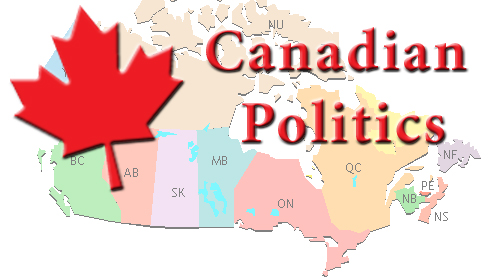 CALGARY, AB – Business – If I had a buck for every time someone e-mailed or called to insist that “the federal government cannot legally collect income tax,” I would have long ago retired to sip red wine in an expensive villa in southern Italy. But want to give accountants and lawyers plenty of money, and judges plenty of work, in the years ahead? Try not paying income tax for a season or two; the courts will not come to your aid.
CALGARY, AB – Business – If I had a buck for every time someone e-mailed or called to insist that “the federal government cannot legally collect income tax,” I would have long ago retired to sip red wine in an expensive villa in southern Italy. But want to give accountants and lawyers plenty of money, and judges plenty of work, in the years ahead? Try not paying income tax for a season or two; the courts will not come to your aid.
The myth of illegal/unconstitutional income tax: it started down south
Like any conspiracy theory, it is impossible to track every strand in the origin of the belief that income tax is unconstitutional. It appears, however, that Canadian myths are mutations of similar American tales. South of the border, there was in fact a ruling that some income tax was illegal. In an 1895 Supreme Court decision, Pollock v. Farmers Loan & Trust Company, a divided court found that the previous year’s attempt by Congress to tax incomes (derived from property) was unconstitutional. Oddly, just 15 years earlier, the court unanimously upheld the right of Congress to levy a similar tax during the American civil war. Regardless, the Sixteenth Amendment to the U.S. Constitution was passed in 1913 and that cleared up any confusion and explicitly provided for federal income taxes to be levied. Thus, after 1913, the federal government could levy a tax on income anywhere in the United States of America and promptly did so.
Canadian myths about the illegality of taxes; De-taxers and “Freemen”
In Canada, the myth that income tax is illegal and unconstitutional likely originated with the American developments and then grew unique Canadian strands. In the late 1990s, back when I was employed by the Canadian Taxpayers Federation, self-described “de-taxers” offered seminars and informed paying attendees that income tax resulted from either a conspiracy or an uninformed public.
One reason the income-tax-is-illegal movement took off was that great money could be made. Most mythmakers charged people for their de-tax manuals or seminars. One pamphlet listed a $25 fee for the first night, which climbed to $100 by the third evening. An entire seminar plus guide would cost over $700. Another de-tax organization offered a swell deal for information on how to “cut your tax bill by 50 per cent!” The price was $600 payable via a money order.
The courts have heard the income-tax-is-unconstitutional shtick multiple times and thumped it multiple times. In 2001, Sir Daniel Lear, whose real name was Ralph Swim, was convicted in the largest case of tax evasion in Manitoba history. With over $8.4 million in income from various pyramid schemes, and $2.4 million in taxes evaded, Swim accumulated a sprawling estate on the Red River, luxury cars, and antique furniture for his home. In his defence, he cited the King James Bible, the “doctrine of Philadelphia,” the “Tokyo rules,” the constitution of Ceylon, and the British North America Act to support his claim that Canada’s laws and the Income Tax Act did not apply to him.
God, Swim asserted, allowed him to create wealth without paying tax. He also claimed not to be a legal person, called the judge treasonous and testified that “destiny has brought flesh against the infidel.” The infidel judge didn’t buy it. He instead levied a $2.4 million fine against Swim/Sir Lear and sentenced him to five years and eight months in prison.
In Moose Jaw, Saskatchewan, in 2003, Douglas Amell, his common-law wife Heidi Keyzer, and Robert Amell (Douglas’ father) declared themselves “natural persons,” and argued such persons were not subject to income taxes, nor to the jurisdiction of the CRA and the Income Tax Act. By 2010, when the three were in court, Judge D.J. Kovatch of the Provincial Court of Saskatchewan cited 14 cases where the “natural person” argument and defence had already been rejected the courts. He then rejected the “natural person” assertion a 15th time.
There are too many false claims about income tax to list them all, but to note one example, that federal income tax is “unconstitutional.” This belief stems from the misunderstanding over what is written in the Constitution. Some argue that because Section 92 of the Constitution gives the power of “Direct Taxation within the Province in order to the raising of Revenue for Provincial Purposes,” then only the province can levy direct income tax. The error in that argument is best deconstructed by the late Melvin H. Smith, Q.C., a onetime constitutional adviser to four British Columbia premiers. He once wrote of how people misread the Constitution on this point:
The argument saying the federal income tax is illegal goes something like this. Since each level of government is afforded under the constitution exclusive jurisdiction on the subject matter listed to the exclusion of the other (true) and since income tax is direct taxation (true), then only provinces can impose income tax (false).
The fallacy lies in not reading fully what the provincial taxing powers section says. It does not say the provinces have the exclusive right to impose direct taxation. What it does say is that the provinces have exclusive right to impose direct taxation to raise “revenues for provincial purposes.” By contrast, when the federal government imposes an income tax it does so for federal purposes (obviously) and therefore it cannot be said to be infringing upon the provincial taxing power . . . It means the federal government cannot impose direct taxation (including income tax) “for provincial purposes,” but why would it want to?”
Want a 25-per cent GST?
All of conspiracies miss a useful, critical point. If some court somewhere in Canada magically declared federal income tax unconstitutional tomorrow, the federal government would simply raise the Goods and Services Tax to 25 per cent to obtain the same amount of revenue. Want to shrink government and your tax bill? An incantation in front of judge about how federal income tax is unconstitutional will not do it.
Mark Milke
Excerpted from Tax Me I’m Canadian! A Taxpayer’s’ Guide to your Money and How Politicians Spend It. Mark Milke. Thomas & Black 2014. Reprinted with permission.










